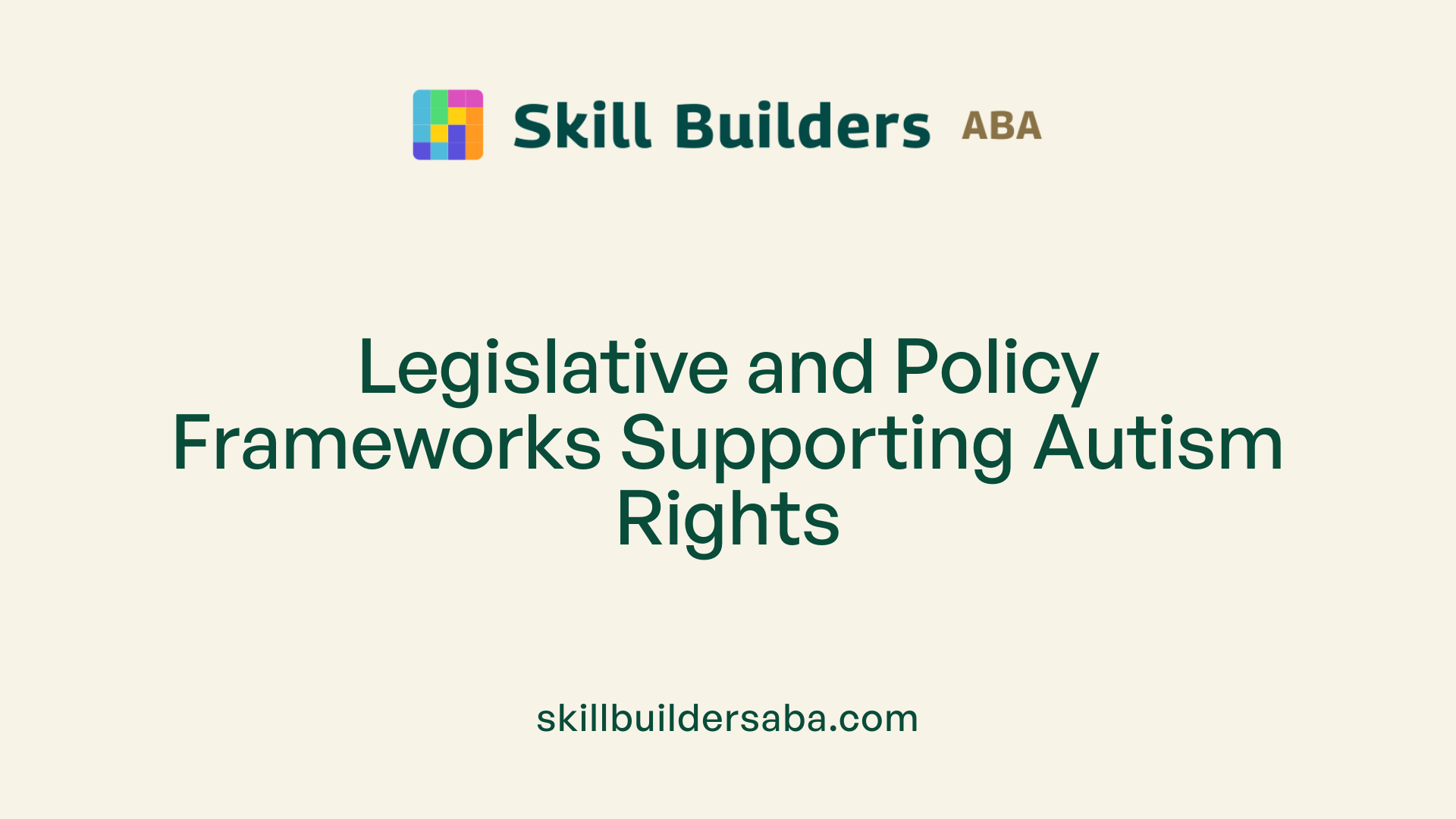Autism In Europe
Advancing Autism Understanding and Support Across Europe

A Comprehensive Overview of Autism in the European Context
Autism spectrum disorder (ASD) presents unique challenges and opportunities across Europe, where diverse cultures, policies, and support systems influence diagnosis, awareness, and inclusion. With a growing prevalence and an active community advocating for rights and acceptance, Europe continues to make strides in promoting understanding and improving the quality of life for autistic individuals. This article explores the landscape of autism across European nations, examining prevalence rates, diagnostic practices, societal attitudes, legislative frameworks, activism, and upcoming major events that foster progress in autism research and support.
Understanding Autism in Europe: Prevalence and Trends

What is the prevalence of autism in Europe and how does it compare to other regions?
Recent research estimates that the autism spectrum disorder (ASD) prevalence in Europe is around 0.73%, based on studies conducted from 1994 to 2019. Among children aged 5–18 years, the pooled prevalence from register-based studies is approximately 0.8%, while population studies suggest around 1.4%. These figures indicate that autism is common in Europe, but the rates are somewhat lower than those reported in North America, which stands at about 1.01%.
Prevalence rates across individual European countries vary significantly, from as low as 0.3% in Poland to as high as 14.3% in Romania. Higher estimates tend to be found in countries with greater resources and higher Human Development Index, often linked to better diagnostic practices.
How has autism prevalence changed over time in Europe?
Over the last 30 years, there has been a consistent increase in autism diagnosis in Europe. Earlier data from 1994–1999 showed rates at around 0.25%. More recent studies, especially those from 2015 to 2019, report rates nearing 0.99%. This growth is largely driven by enhanced awareness, improvements in diagnostic tools, broader diagnostic criteria, and increased societal understanding.
The trend highlights the importance of recognizing what these numbers reflect. Much of the rise can be attributed to better detection and a wider scope of diagnosed cases rather than an actual surge in autism prevalence. Nevertheless, the increase underscores the growing need for robust policies and support systems.
Factors influencing prevalence estimates
Prevalence figures are affected by multiple factors. Diagnostic criteria have evolved, allowing more children and adults to be diagnosed. Awareness campaigns and improved screening methods lead to earlier detection.
Socioeconomic factors also play a role. Countries with higher income levels often report higher prevalence, potentially due to more comprehensive healthcare and diagnostic services. Conversely, in lower-income regions, underdiagnosis remains a challenge, which suggests that true prevalence might be higher than reported.
Additionally, variations in study methodologies—such as sample size, study design, and data sources—contribute to differences in prevalence estimates across studies and countries.
| Aspect | Details | Impact on Data |
|---|---|---|
| Diagnostic Criteria Changes | Broader, more inclusive over time | Increases reported prevalence |
| Awareness and Screening | Improved detection methods | Leads to higher diagnosed rates |
| Socioeconomic Factors | Affordability of healthcare, education, advocacy | Influences detection and reporting |
| Study Methodology | Sample size, data collection methods | Variability in estimates |
Additional findings
Research indicates that boys are diagnosed more frequently than girls, with a ratio near 3.5:1. Early intervention and early diagnosis remain crucial for improving outcomes and quality of life for autistic individuals.
Ongoing efforts by organizations like Autism Europe advocate for harmonized European policies to reduce delays in diagnosis and support, recognizing that timely autism detection significantly impacts long-term well-being.
Diagnosing Autism: Methodologies and Challenges in Europe

How is autism diagnosed in Europe?
In Europe, autism diagnosis relies on established clinical methods aligned with international standards such as the DSM-5 (Diagnostic and Statistical Manual of Mental Disorders, Fifth Edition) and ICD-11 (International Classification of Diseases, 11th Revision). Healthcare providers conduct comprehensive assessments based on developmental histories, behavioral observations, and reports from parents, teachers, or caregivers.
Common diagnostic tools include the Autism Diagnostic Interview-Revised (ADI-R), Autism Diagnostic Observation Schedule (ADOS), and the Childhood Autism Rating Scale (CARS-2), mainly used for diagnosing children. For adults, screening methods such as the Ritvo Autism Asperger Diagnostic Scale-Revised (RAADS-R) and the Diagnostic Interview for Social and Communication Disorders (DISCO) are commonly employed.
The diagnostic process typically involves multiple steps, including detailed interviews, physical examinations as needed, and sometimes visits to educational settings. Once all assessments are completed, practitioners provide a detailed report that determines whether the individual meets the diagnostic criteria for autism and recommends appropriate interventions or supports.
What are the common diagnostic barriers faced across European countries?
Despite the availability of standardized procedures, several barriers hinder timely autism diagnosis across Europe. A major challenge is the delay in detection, often caused by limited awareness or understanding of autism among the general public and healthcare providers.
Insufficient screening programs and disparities in access to specialized assessment services further exacerbate these delays, especially in lower-income countries or regions with underdeveloped healthcare infrastructure. Long wait times—from initial concern to definitive diagnosis—can often exceed one year, delaying intervention and support.
In addition, variability in diagnostic practices and the scarcity of trained professionals competent in autism assessment contribute to inconsistent diagnoses. These barriers collectively impact the quality of life for autistic individuals and their families, highlighting the urgent need for harmonized, accessible, and efficient diagnostic systems throughout Europe.
Support Systems and Services for Autistic Individuals in Europe

What support and services are available for individuals with autism in Europe?
Across Europe, support for autistic individuals varies widely, but the main goal remains consistent: to enhance inclusion and quality of life. Early intervention programs are crucial, focusing on improving social, communicative, and emotional skills from a young age. Schools often provide specialized educational support tailored to meet individual needs, facilitating access to mainstream education alongside appropriate therapies.
In addition to educational services, therapies such as speech, occupational, and behavioral interventions are commonly offered. Family assistance is also prioritized, with many regions providing counseling and help navigating healthcare and social services.
Organizations like Autism Europe and national charities, including Ireland’s AsIAm, advocate for increased awareness, training, and resource allocation. Some countries have developed specialized residential facilities, offering safe environments where autistic individuals can receive care and community support.
Community programs further promote awareness and acceptance, with initiatives aimed at training first responders, educators, and healthcare workers. These efforts improve safety, reduce stigma, and support societal integration.
A significant movement in Europe is toward deinstitutionalization—shifting from isolated care settings to community-based and inclusive environments. Employment support and social participation are also key aims. Overall, the push is for more comprehensive, accessible services that empower autistic people to live independently and participate actively in society.
How do national and EU policies facilitate services and inclusion?
European policy frameworks play a vital role in shaping services available to autistic individuals. Many countries have adopted laws aligned with the UN Convention on the Rights of Persons with Disabilities, emphasizing equal rights and access to education, employment, and social participation.
The European Accessibility Act of 2019 set minimum standards for products and services, aiming to improve accessibility across the continent. Policies prioritize inclusive education and aim to eliminate barriers that autistic individuals face in schools and workplaces.
European institutions have taken steps to harmonize rights and support systems. Notably, the 2023 European Parliament resolution advocates for a European Disability Card, providing a standardized way for disabled persons to access benefits and services across member states.
Despite these legislative efforts, disparities remain. Service availability, quality, and support levels differ greatly depending on the country’s resources, infrastructure, and societal attitudes. Harmonization initiatives strive to address these gaps, promoting equitable access to services, opportunities, and societal participation.
Examples of support initiatives from various countries
| Country | Initiative | Description | Impact |
|---|---|---|---|
| Ireland | Autism Friendly Capital Project | Dublin aims to become the world’s first autism-friendly capital city, improving accessibility and societal acceptance. | Increased public awareness and infrastructure adjustments to support autistic individuals. |
| Sweden | Autism Spectrum Disorder Diagnostic Support | Offers comprehensive early diagnostic and intervention services targeted at young children. | Improved early detection rates and tailored support for young children. |
| Spain | School Inclusion Programs | Schools implement special training for educators and dedicated support staff to aid autistic students. | Better educational participation and social integration for children. |
| Romania | Community Outreach Campaigns | Nationwide campaigns to raise awareness and promote community-based support. | Increased societal acceptance and reduction of stigma surrounding autism. |
| Poland | Support for Families and Respite Care Programs | Provides financial assistance and respite care options for families with autistic children. | Enhanced family wellbeing and stability, enabling better local support. |
These initiatives reflect the diversity and ongoing efforts across Europe to uphold the rights and improve services for autistic people. Policy development continues to evolve, with a focus on removing barriers, expanding access, and fostering inclusive societies.
Legislative and Policy Frameworks Supporting Autism Rights

What policies and legislation exist to support autism in Europe?
Europe has established a range of policies and legal measures aimed at supporting the rights and inclusion of autistic people. Fundamental among these is the adherence to the UN Convention on the Rights of Persons with Disabilities, which emphasizes non-discrimination, accessibility, and full participation in society.
Additionally, the European Accessibility Act of 2019 sets common standards for accessible products and services across member states. This legislation promotes greater societal participation for autistic individuals by ensuring access to transportation, communication, and information.
The European Parliament has also taken steps to promote standardized rights for autistic persons through resolutions advocating for harmonized policies. Initiatives such as the proposed European Disability Card seek to give autistic individuals easier access to rights and services across borders.
Since 1996, the European Charter of Rights for Persons with Autism has emphasized the importance of equal rights and dedicated support systems.
Despite these robust frameworks, disparities in policy implementation, resource allocation, and service quality persist among countries. Continuous efforts are needed to achieve further harmonization and ensure all autistic people receive adequate support.
How have European institutions influenced national policies for autism?
European institutions have significantly impacted national policies through advocacy, guidance, and setting standards. The European Parliament's resolutions and declarations serve as a policy blueprint that encourages countries to develop inclusive legislation.
Involvement in drafting international agreements like the UN Convention on the Rights of Persons with Disabilities has reinforced a human rights-based approach within national legal systems.
Further, the European Charter of Rights and recent efforts to standardize protections have prompted governments to reform and improve their support systems.
While these European-level initiatives foster policy alignment, the extent of domestic policy implementation varies based on each country's economic capacity and social frameworks. Nonetheless, EU institutions continue to champion the rights of autistic persons, pushing for more cohesive and effective national policies.
Autism Advocacy, Campaigns, and Major Events in Europe

What initiatives and campaigns are active across Europe?
Across Europe, organizations like Autism-Europe are at the forefront of efforts to raise awareness, promote acceptance, and protect the rights of autistic individuals. They lead a variety of campaigns aimed at transforming societal perceptions and policies. Prominent among these are the #AutismDay2025 campaign and the 'Not Invisible' campaign.
The #AutismDay2025 campaign, tied to World Autism Awareness Day, encourages public participation, social media engagement, and community activities to shed light on autism-related issues. Meanwhile, the 'Not Invisible' campaign specifically advocates for increased visibility and recognition of autistic people, emphasizing their rights and needs.
These campaigns involve public awareness initiatives, collaborations with educational and governmental institutions, and advocacy for policy reforms. They also include professional training programs and community events designed to foster inclusivity. Through these multifaceted efforts, advocacy groups strive to enhance understanding, reduce stigma, and ensure that autistic individuals have access to education, healthcare, and social services. Overall, these initiatives form a dynamic movement across Europe working towards societal change.
What are some major upcoming events that shape autism discourse in Europe?
One of the most significant upcoming events is the 14th Autism Europe Congress scheduled for September 2025 in Dublin, Ireland. Organized by Autism-Europe and hosted by Ireland’s Autism Charity, AsIAm, this congress is a pivotal gathering of stakeholders including researchers, healthcare professionals, autistic individuals, families, and policymakers.
Centered around the theme 'Quality of Life – Research, Policy and Practice,' the congress aims to promote a comprehensive approach to supporting autistic people through innovative research, effective policies, and best practices. It provides an essential platform to discuss advancements, share success stories, and foster collaboration across borders.
Dublin’s ambition to become the world’s first accredited autism-friendly capital underscores the city’s commitment to inclusion and accessibility. The event’s diverse scientific committee reflects a collaborative approach, incorporating voices from autistic individuals and their families, which is vital for meaningful progress.
Such international congresses influence the formulation of policies, inspire new research initiatives, and increase societal understanding about autism. They serve as catalysts for change, shaping the future landscape of autism support, advocacy, and societal inclusion across Europe.
| Campaigns and Events | Main Focus | Specific Activities | Impact Area |
|---|---|---|---|
| #AutismDay2025 | Awareness and Acceptance | Social media, community events | Society-wide stigma reduction |
| Not Invisible Campaign | Visibility of Autistic People | Advocacy, public communication | Policy and societal change |
| 14th Autism Europe Congress | Research and Policy Development | International conference sessions | Autism Support and Rights |
Through these targeted campaigns and landmark events, Europe continues to push forward on the path towards greater inclusion and understanding of autism.
The Role of Autism Societies and International Collaboration in Europe
What is the history and main initiatives of autism organizations in Europe?
Autism organizations in Europe, with Autism-Europe being one of the most prominent, have a history dating back to 1983 when it was founded in Ghent, Belgium. Since then, they have worked tirelessly to advocate for the rights, awareness, and integration of autistic individuals. These organizations strive to influence policy, promote research, and increase societal acceptance.
Autism-Europe, as a leading umbrella organization, has been pivotal in launching initiatives such as the 'Charter for Persons with Autism' in 1992, which later influenced the European Parliament’s adoption in 1996. The organization actively campaigns for equal access to education, employment, and social inclusion, exemplified by its involvement in the drafting of recommendations on autism by the Council of Europe in 2007.
Additionally, Autism-Europe has contributed to policy developments such as the European Parliament’s Written Declaration on Autism in 2015. These efforts are complemented by public awareness campaigns like 'Not Invisible,' which seek to enhance the visibility and rights of autistic individuals. Over the decades, their advocacy has led to tangible legal achievements, including initiatives to improve education and social services, fostering a rights-based approach to autism across Europe.
How does international collaboration influence autism policy in Europe?
International cooperation plays a crucial role in shaping effective autism policies throughout Europe. Engagements with global bodies such as the United Nations and the European Union have been instrumental in advancing the rights and inclusion of autistic people.
For instance, Europe's active participation in the drafting and adoption of the UN Convention on the Rights of Persons with Disabilities in 2006 reinforced the commitment to ensuring accessibility and nondiscrimination for autistic individuals. This international treaty laid the groundwork for many national policies focused on social inclusion and equal opportunities.
Furthermore, collaborative research projects like AIMS-2-TRIALS, funded by the EU, enhance understanding of autism’s variability and support the development of tailored intervention strategies. These projects foster knowledge exchange and standardization of assessment and intervention practices across countries.
Through policy recommendations, joint initiatives, and shared research efforts, international partnerships have led to harmonized standards and best practices. They also drive legislative reforms, promote awareness, and ensure that the needs of autistic communities are recognized and supported uniformly across Europe, ultimately fostering a cohesive and inclusive approach to autism.
Conclusion: Towards a More Inclusive Europe for Autism
What is the future outlook for autism understanding and support in Europe?
The outlook for autism support and awareness in Europe continues to improve as efforts to unify policies and increase understanding grow. There is a strong focus on recognizing autism as a spectrum, which drives the development of more personalized services, early interventions, and societal acceptance. As research advances and international cooperation expands, the continent is working towards reducing diagnosis hurdles and disparities across countries. Implementing inclusive education, employment, and community engagement strategies remains a priority.
Strengthening legislative frameworks and fostering a supportive environment are crucial steps. With the combined efforts of advocacy groups like Autism-Europe and progressive policy changes, Europe aims to build a society where autistic individuals are respected and empowered to participate fully. Attaining these goals depends heavily on continuous progress in research, awareness campaigns, and cross-border collaboration, creating a future where everyone on the spectrum can thrive.
Why is societal acceptance crucial for progress in autism support?
Societal acceptance plays a vital role in advancing the rights and well-being of autistic individuals. When communities embrace neurodiversity, they foster environments where autistic people are respected, included, and supported. Greater societal acceptance reduces stigma, encourages early diagnosis, and promotes supportive practices in education and employment.
Public understanding can break down barriers, enabling policies that uphold dignity, independence, and active participation. Campaigns that raise awareness, media representation, and education initiatives are essential tools for cultivating acceptance. By viewing autism through a lens of respect and appreciation for individual strengths, societies across Europe can move towards more inclusive and equitable futures.
Building a More Inclusive and Understanding Europe
As Europe continues to advance in autism awareness, research, and support, the importance of harmonized policies, societal acceptance, and comprehensive services becomes increasingly evident. The journey toward a more inclusive Europe requires ongoing collaboration across governments, communities, and autistic individuals themselves. The upcoming Autism Europe Congress in Dublin highlights a collective commitment to enhancing quality of life through research, advocacy, and policy development. Embracing neurodiversity and promoting understanding across diverse cultures will pave the way for a future where everyone, regardless of neurological difference, can participate fully and with dignity in society.
References
- Autism Europe
- Prevalence rate of autism - Autism Europe
- Autism care pathway in Europe - PMC
- Prevalence of autism in Europe, North America and Oceania, 2000 ...
- The global prevalence of autism spectrum disorder: A three-level ...
- Acceptable language - Autism Europe
- The Prevalence of Autism Spectrum Disorder in Europe | IntechOpen
.svg)














